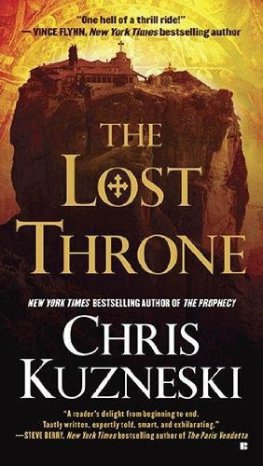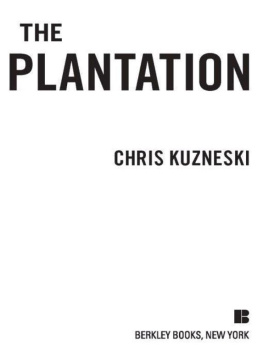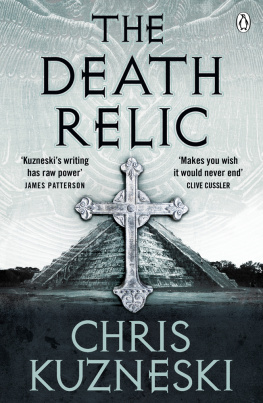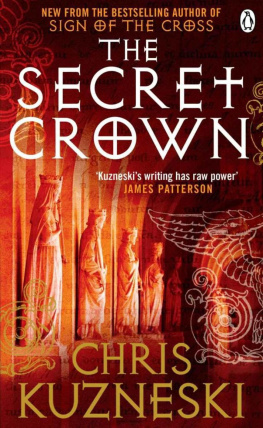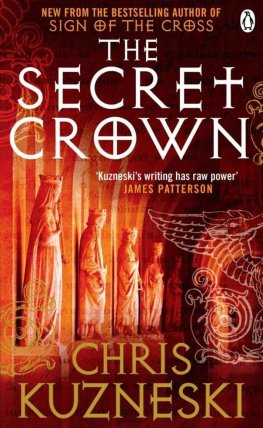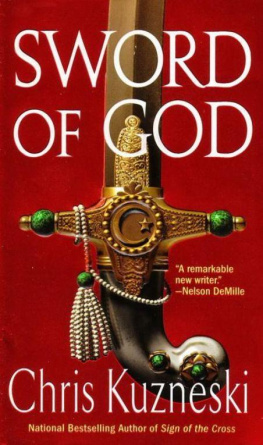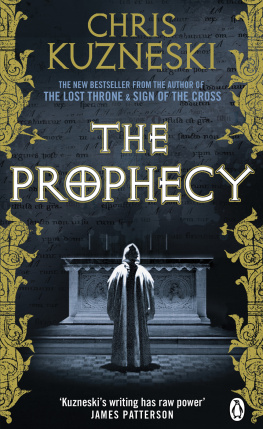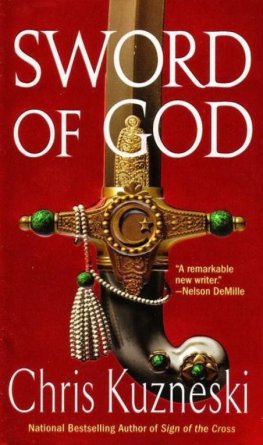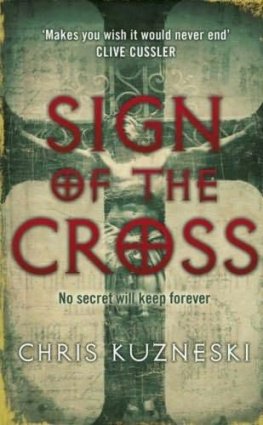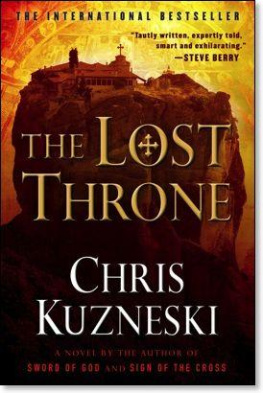Chris Kuzneski - The Lost Throne
Here you can read online Chris Kuzneski - The Lost Throne full text of the book (entire story) in english for free. Download pdf and epub, get meaning, cover and reviews about this ebook. genre: Science fiction. Description of the work, (preface) as well as reviews are available. Best literature library LitArk.com created for fans of good reading and offers a wide selection of genres:
Romance novel
Science fiction
Adventure
Detective
Science
History
Home and family
Prose
Art
Politics
Computer
Non-fiction
Religion
Business
Children
Humor
Choose a favorite category and find really read worthwhile books. Enjoy immersion in the world of imagination, feel the emotions of the characters or learn something new for yourself, make an fascinating discovery.
- Book:The Lost Throne
- Author:
- Genre:
- Rating:4 / 5
- Favourites:Add to favourites
- Your mark:
- 80
- 1
- 2
- 3
- 4
- 5
The Lost Throne: summary, description and annotation
We offer to read an annotation, description, summary or preface (depends on what the author of the book "The Lost Throne" wrote himself). If you haven't found the necessary information about the book — write in the comments, we will try to find it.
The Lost Throne — read online for free the complete book (whole text) full work
Below is the text of the book, divided by pages. System saving the place of the last page read, allows you to conveniently read the book "The Lost Throne" online for free, without having to search again every time where you left off. Put a bookmark, and you can go to the page where you finished reading at any time.
Font size:
Interval:
Bookmark:

Chris Kuzneski. The Lost Throne
(Payne and Jones 7)
This is a work of fiction. Names, characters, places, and incidents either are the product of the authors imagination or are used fictitiously, and any resemblance to actual persons, living or dead, businesses, companies, events, or locales is entirely coincidental.
While the author has made every effort to provide accurate telephone numbers and Internet addresses at the time of publication, neither the publisher nor the author assumes any responsibility for errors, or for changes that occur after publication. Further, the publisher does not have any control over and does not assume any responsibility for author or third-party websites or their content.
http://us.penguingroup.com
ACKNOWLEDGMENTS
Publishing a book requires a collective effort, so I would like to thank a few of the people who helped The Lost Throne see the light of day.
As always, Id like to start off by thanking my family. Without their love and support, I wouldnt be the writer (or the person) that I am today.
Professionally, I want to thank Scott Miller, my remarkable agent. Before we teamed up, I couldnt find a publisher. Now my books are available in several languages around the world. How you pulled off that miracle, Ill never know. But keep up the great work! While Im at it, I want to thank Claire Roberts, my main foreign agent, and everyone else at Trident Media who has helped my career during the past few years. Wow, what a great organization.
Actually, I can say the same thing about the Penguin Group. In particular, Id like to single out my editor, Natalee Rosenstein, and her amazing assistant, Michelle Vega. Working with them has been wonderful. Id also like to thank Ivan Held and the publishing and marketing wizards at Putnam. I hope this is the beginning of a long relationship.
Next up is my extraordinary friend Ian Harper. Through the magic of e-mail, he gets to read my work before anyone else, and his suggestions and advice are always invaluable. So if anyones looking for a freelance editor, let me know. Id be happy to put you in touch with him.
Last but not least, a big thanks to all the readers, booksellers, critics, and librarians who have read my books and recommended them to others. At this stage of my career, I need all the help I can get, so I would appreciate your continued support.
Okay. Now that Im done expressing my gratitude, its time for the good stuff.
Just sit back, relax, and let me tell you a story. . . .

PROLOGUE
CHRISTMAS DAY, 1890
Piazza della Santa Carit
Naples, Italy
The greatest secret of Ancient Greece was silenced by a death in Italy.
Not a shooting or a stabbing or a murder of any kind-although dozens of those would occur later-but a good old-fashioned death. One minute the man was strolling across the Piazza della Santa Carit , pondering the significance of his discovery; the next he was sprawled on his stomach in the middle of the cold square. People rushed to his side, hoping to help him to his feet, but one look at his gaunt face told them that he needed medical attention.
Two policemen on horseback were flagged down, and they rushed him to the closest hospital, where he slipped in and out of consciousness for the next hour. They asked him his name, but he couldnt answer. His condition had stolen his ability to speak.
The man wore a fancy suit and overcoat, both of which revealed his status. His hair was thin and gray, suggesting a man in his sixties. A bushy mustache covered his upper lip.
Doctors probed his clothes, searching for identification, but found nothing of value. No papers. No wallet. No money. If they had only looked more closely, they might have noticed the secret pocket sewn into the lining of his coat, and the mystery would have ended there. But as hospital policy dictated, no identification meant no treatment. Not even on Christmas morning.
With few options, the police took him to the local station house, an ancient building made of brick and stone that would shelter him from the bitter winds of the Tyrrhenian Sea. They fed him broth and let him rest on a cot in an open cell, hoping he would regain his voice.
In time, he regained several.
Starting with a whisper that barely rose above the level of his breath, the sound slowly increased, building to a crescendo until it could be heard by the two officers in the next room. They hurried down the corridor, expecting to find the stranger fully awake and willing to answer their questions. Instead they saw a man in a semicata tonic state who was babbling in his sleep.
His eyes were closed and his body was rigid, yet his lips were forming words.
One of the officers made the sign of the cross and said a short prayer while the other ran for a pencil and paper. When he returned, he pulled a chair up to the cot and tried to take notes in a small journal. Maybe theyd get an address. Or if they were really lucky, maybe even a name. But they got none of those things. In fact, all they got was more confused.
The first words spoken were German. Then French. Then Portuguese. Before long he was mixing several languages in the same sentence. Dutch followed by Spanish and Latin. English layered with Greek and Russian. Every once in a while he said something in Italian, but the words were so random and his accent so thick that they made little sense. Still, the officer transcribed everything he could, and before long he noticed some repetition. One word seemed to be repeated over and over. Not only in Italian but in other languages as well.
Il trono. Le trne. El trono.
The throne.
This went on almost for several minutes. Language after language from one mans mouth. Like the devil speaking in tongues. Then, just as quickly as it started, it stopped.
No more words. No more clues.
The man would never speak again.
Two days later, after he had been identified, newspapers around the globe reported his death. Yet there was no mention of his strange behavior. Nothing about his ramblings or the throne he kept describing. Instead, reporters focused on the colorful details of his life-his wealth, his accomplishments, his discoveries. All the things that made him famous.
Of course, if they had known the truth about his final days, what he had finally found after years of searching, they would have written a much different story.
One of fire, deception, and ancient gold.
One that wouldnt have an ending for almost two more centuries.
1
PRESENT DAY
Saturday, May 17
Metora, Greece
The monk felt the wind on his face as he plummeted to his death, a journey that started with a scream and ended with a thud.
Moments before, he had been standing near the railing of the Moni Agia Triada, the Monastery of the Holy Trinity. It was one of six monasteries perched on natural rock pillars near the Pindus Mountains in central Greece. Known for their breathtaking architecture, the monasteries had been built 2,000 feet in the air with one purpose in mind: protection.
But on this night, their sanctuary was breached.
The intruders had crossed the valley and climbed the hillside with silent precision. They carried no guns or artillery, preferring the weapons of their ancestors. Swords stored in scabbards were strapped to their backs. Daggers in leather sheaths hung from their hips. Bronze helmets covered their entire heads except for their eyes and mouths.
Next pageFont size:
Interval:
Bookmark:
Similar books «The Lost Throne»
Look at similar books to The Lost Throne. We have selected literature similar in name and meaning in the hope of providing readers with more options to find new, interesting, not yet read works.
Discussion, reviews of the book The Lost Throne and just readers' own opinions. Leave your comments, write what you think about the work, its meaning or the main characters. Specify what exactly you liked and what you didn't like, and why you think so.

